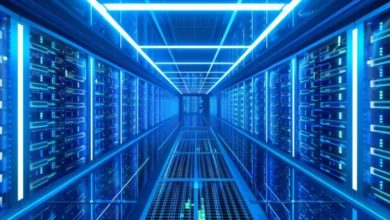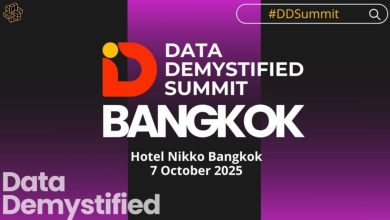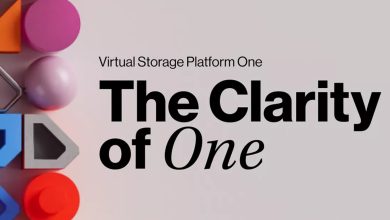AI, Scarcity, Power, and Other Data Centre Trends for 2024

By: Natalya Makarochkina, Senior Vice President, Secure Power Division at Schneider Electric
 It’s easy to say that 2023 was the year of AI, or generative AI to be more specific. We saw a number of positive movements in the country from the government’s plans to make Malaysia a regional AI hub to budget allocations to establish the country’s first AI faculty in a public research university.
It’s easy to say that 2023 was the year of AI, or generative AI to be more specific. We saw a number of positive movements in the country from the government’s plans to make Malaysia a regional AI hub to budget allocations to establish the country’s first AI faculty in a public research university.
The government also emphasised the urgency for Malaysia to take the lead in the global digital sphere, stressing the need to bolster digital innovation and talent, particularly in AI, to ensure sustainable economic development.
Adjusting to its demands – and exploiting its potential – will be big tasks for the data centre industry in 2024, along with handling related issues of scarcity and power. Three additional trends worth watching involve alternative sources of energy, liquid cooling, and quantum computing.
AI Everywhere
Enterprises are continuing to adopt cloud computing (and recalibrate deployments) and engage in digital transformation. But the leading driver of data centre demand over the next year will be AI. One of the largest chip giants is also considering the development of its AI data centres in Malaysia.
We are projecting that for every new standard data centre, there are going to be three additional AI data centres, with all of AI’s attendant challenges, such as higher server densities.
But that’s not the only way AI will be impacting this expanding industry. Schneider Electric has predicted that AI will enable operators to better manage their assets. Just as software has been automating operations, this year we’ll see AI-driven tools that can provide greater intelligence to utility and backup power control, cooling control, cross-domain operational optimisation (digital twins), data centre design and construction, maintenance, robotics, and more.
Scarcity and Modularity
Need more capacity right now? Good luck. There’s not a lot of build-to-spec data centre properties out there, waiting for tenants to stroll by and sign up. Too much demand and too little vacancy. Up ahead in 2024 lies more build-to-suit. That applies across the board, not only to the internet giants.
But purpose-built facilities still require components. And given existing constraints, that’s leading operators to lock down as much of the supply chain as possible. Modular data centre infrastructure is a viable answer. Current economics support the efficiencies of modularity and put a premium on guaranteed future deliveries, as we demonstrated in this notable $3 billion deal.
Power and the Grid
How are you going to power these new data centres – or existing ones – and meet ambitious goals for carbon neutrality? Getting approved for a permit requires a supply of renewable energy and an understanding that your backup system could effectively turn you into a power generation plant. Not every
jurisdiction is comfortable with that idea, but this year we will see the industry begin turning that into a positive.
Large battery storage systems powered by renewables can benefit the regional grid and local population. The idea is in addition to using stored excess capacity during times of excess customer demand, operators can also collaborate with utilities and sell power during periods of heightened demand from their customers. Precisely how to power those batteries is an open question (see below) but given a less stable power grid, the industry will likely have growing opportunities to become a community friend.
Greener Energy, Liquid Cooling, Quantum
Here are three more trends: alternatives to (standard) diesel; liquid cooling options; and quantum computing. They are emerging, but still warrant attention.
● Green diesel and hydrogen. Reduced hydropower and slower-than-expected wind and solar deployments led to power instability last year. Diesel is the quick answer for data centre operators in such circumstances. But that goes against sustainability commitments. Green (renewable) diesel and green hydrogen are options. Limited feedstocks for the former and an energy-intensive lifecycle for the latter make them suboptimal currently, but that could change. This is a problem the industry wants to solve, sooner rather than later.
● Liquid Cooling. A constant load of AI runs servers hot. That is one driver in the evolution from air to liquid cooling, which becomes an answer for AI clusters that exceed 20 kW/rack. Liquid cooling is far from having reached the “plateau of productivity.” The best approach is working it into new designs, which puts it a few years away from deployment. Retrofitting is tricky and a little risky, as we note in our paper on AI Disruption. But the heat is real, and we’ll see more trialling and testing in 2024.
● Quantum Computing. Is this the year when quantum moves out of the very low-temperature, purpose-built lab and into a typical data centre? Probably not. But it’s not too early to think about protecting your infrastructure from quantum computers being able to compromise existing cybersecurity. This year we’ll hear more from companies about integrating secure elements into servers and software, using NIST-selected quantum-resistant algorithms. Listen to them. Adversaries are harvesting now and planning to decrypt later.
Sobering Up in the New Year
The rush of GenAI hit the IT ecosystem hard. With the coincident arrival of fears and some regulatory blowback, we’re in a bit of a hangover period. Anticipating steep growth, the industry is facing related economic, supply chain, and powering opportunities and challenges – along with a few others that are no less important, if not quite as urgent.
It’s a good time to be clear-eyed. Tapping into the extensive resources at Schneider Electric is a sure way to gain clarity in the face of the AI tsunami, data centre shortages, grid challenges, and more. Our solutions, services and experts are available to partners, customers, and the industry at large.




